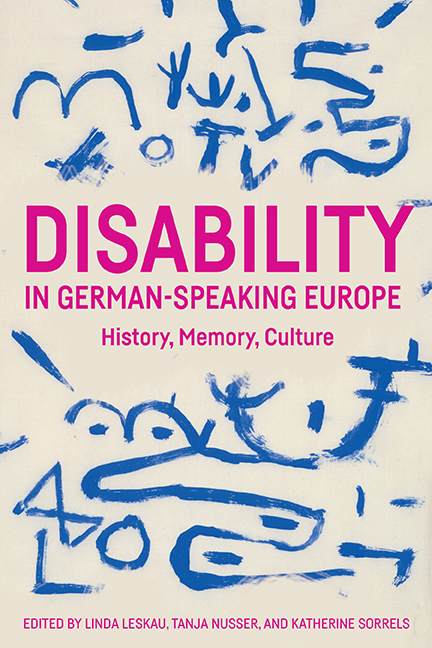10 - Disability as Opportunity in Alissa Walser’s Novel about the Blind Maria Theresia Paradis
Published online by Cambridge University Press: 16 July 2022
Summary
MARIA THERESIA PARADIS (1759–1824), an eighteenth-century pianist and composer, was a child prodigy and an “exceptional” woman. She was one of the very few female composers before the nineteenth century who were fairly well known. She was the daughter of Joseph Anton [von] Paradis (1733–1808), imperial secretary and Court Councilor in the court of Maria Theresia, Empress of the Holy Roman Empire, and his wife. She had gone blind suddenly as a child, probably at the age of three. Paradis was treated with the standard methods of the time, including leeches, calming herbs such as Valerian, and laxatives, but also proinflammatory drugs and extensive electrical shocks. She remained the Paradis's only child, and they made an effort to provide an unusually good education for her, especially in music. Through her mother, Rosalia Maria, nee Levassori della Motta, she was part of a long family tradition of professional musicians and performers at the Viennese court. Paradis probably first performed semi-publicly in musical circles in 1775, at the age of sixteen. Her father reports that even Empress Maria Theresia was impressed with her performance at the organ and pianoforte and that she was moved by her “misfortune.” She bestowed on her a pension, which Paradis received throughout the Empress's lifetime. However, nothing is known about the motivation and purpose behind it, or whether it was meant as a reward for her accomplishments or in order to compensate for her impairment.
When Paradis was eighteen her parents sought treatment again, possibly because they planned for her to get married or for the sake of her public appearances. After the court physicians were unsuccessful, they selected the Swabian physician Franz Anton Mesmer to treat her. He needed a spectacular case to prove his theory of animal magnetism. Mesmer assumed the presence of an “invisible fluid” in all celestial bodies, in the earth, and in the animal/human body, which he claimed to be subject to magnetism. Further, he believed that inhibitions of the vital fluid caused diseases and that the human body acted as a magnet. According to his narration of the Paradis case in his “Treatise about the Discovery of Animal Magnetism,” his treatment resulted in alleviation of Paradis's peri-ocular spasms within weeks, and she gradually gained perception of light, shapes, and colors and began to see persons and objects.
- Type
- Chapter
- Information
- Disability in German-Speaking EuropeHistory, Memory, Culture, pp. 219 - 240Publisher: Boydell & BrewerPrint publication year: 2022

